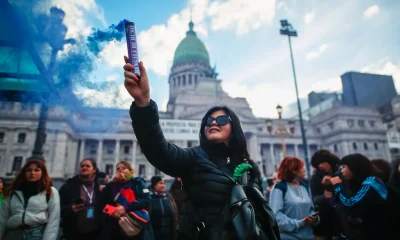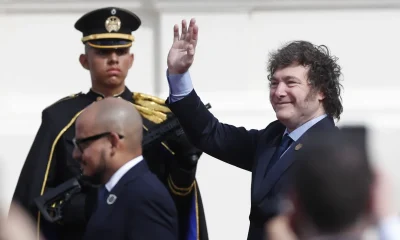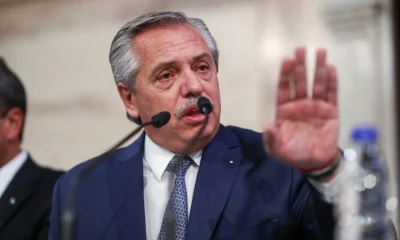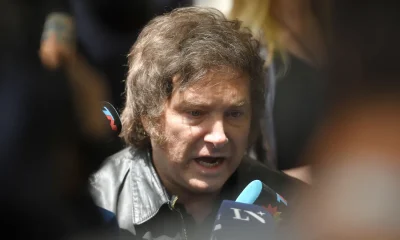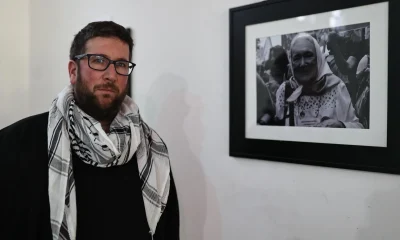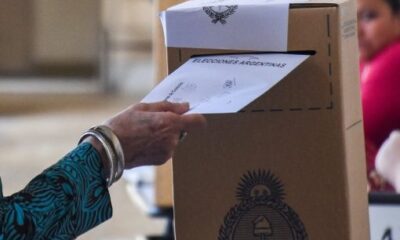International
Argentina’s presidential candidates in final debate
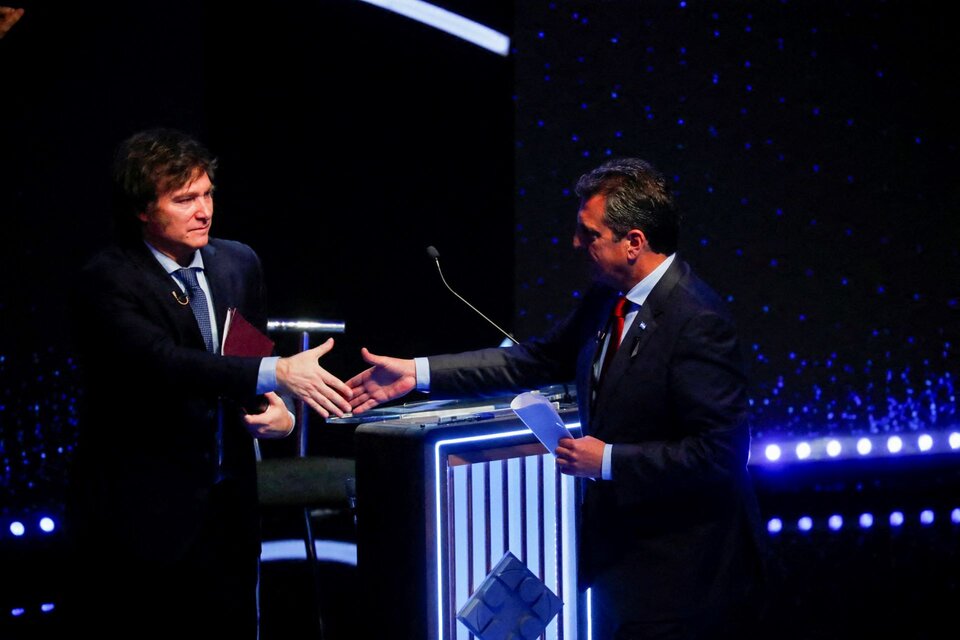
November 13 |
The candidates for the Presidency of Argentina, Sergio Massa (Unión por la Patria) and Javier Milei (La Libertad Avanza) starred on Sunday night in the last and decisive television debate to seek support for the ballot on November 19.
The Law School of the University of Buenos Aires, in the Argentine capital, the same venue as the second debate held before the first round, is the space chosen by the National Electoral Chamber (CNE) for this last appointment.
Throughout the debate both candidates discussed several issues and had a new opportunity to make known their proposals and plans to reach the presidency of the country.
Both Massa and Milei entered into a strong counterpoint, in which the candidate of Unión por la Patria, managed to make the right-winger uncomfortable, who could not face each of the criticisms against him exposed by the candidate of Unión por la Patria (UxP).
The Minister of Economy, Sergio Massa, in his presentation, pointed out that “we have to decide who is going to take care of our health, our education, our work. I am here to propose a great change, with a great agreement of state policies, with dialogue, consensus and respect for those who think differently”.
Milei tried to defend his economic model saying that “Argentina has been in decline for 100 years. This is a consequence of the caste model, which assures that where there is a need there is a right. The problem is that needs are infinite and those rights have to be paid for. This manifests itself in fiscal deficit”.
Massa put Milei on the spot when he confronted him against his campaign and pre-campaign statements: “But there are many things at stake here. We are facing someone who lied during the whole campaign or is lying now”.
According to the Minister of Economy, “Argentina has the responsibility, in an absolutely convulsed world, to think its foreign policy in defense of the Argentine interest, we have to be clear about multipolarity, to have relations with all the countries that open their arms to sell Argentine work. The main partners are Brazil, China, we have to defend that commercial agenda that provides jobs to two million Argentines. This man [Milei] called the most important Argentine in history, Pope Francis, as evil, we are going to work for Francis to come to the country in 2024. And we have to defend the Malvinas cause”, says Massa when talking about Argentina and its relationship with the world.
In the same sense, Massa expresses that Milei said “that Margaret Thatcher was your idol and that the kelpers had the right to self-determination, I ask people to look up what you said”.
Milei tried to answer: “Thatcher was a great leader like Churchill or De Gaulle, she had a great role during the fall of the Berlin Wall, but you are upset that the Wall fell”.
However, Massa closed “Thatcher is an enemy of Argentina”.
The third axis was dedicated to Education and Health. While Milei denies wanting to privatize. Massa answered him in this sense: “Eight points of the GDP will be allocated to education, with 753 kindergartens, with a literacy plan, with compulsory mathematics and robotics, with the preparation of shorter university careers”, Massa listed his proposals.
In the economic block, Sergio Massa pointed out that from the Government “this year we made an effort that allowed us to grow in employment every month” and rejected Javier Milei’s proposal of “opening the economy” that will “destroy thousands of families”.
Massa expressed that “I do not want to go back to that stage in Argentina”, in relation to the indiscriminate opening of imports.
Sergio Massa, said this Sunday that he seeks to “definitively bury the political crack” that exists in the country, while his opponent, the libertarian Javier Milei, asked the population to vote “without fear because it paralyzes”.
At the end of the debate, both candidates were asked by the moderators why they want to preside Argentina.
Massa repeated the idea of forming a “government of unity”, with a program of 10 State policies, and promised to those who will not vote for him out of conviction, “but as a vehicle for not choosing a path that is violence, that is hate, that is damage”, that he will work “so that they do not feel that they threw their vote away”.
On his part, Milei highlighted that this is “the most important election of the last 100 years” because Argentina must ask itself if it wants to continue “walking this decadent path” and “sustain this parasitic, useless and useless caste”; therefore, he asked to “vote without fear because fear paralyzes and benefits the ‘status quo’”.
In view of Javier Milei’s difficulty to answer Sergio Massa’s questions and criticisms, the media could not hide their opinions about the right-winger’s participation in the last debate.
Several media reported that Massa came out victorious by answering with clarity and precision each one of Milei’s opinions, who on more than one occasion tried to make the candidate of Unión por la Patria uncomfortable.
At the end of the last debate for the second round of elections scheduled for November 19, specialized political programs and hegemonic media reported that the candidate of La Libertad Avanza was hesitant and erratic in contrast with Sergio Massa’s answers.
International
Deportation flight lands in Venezuela; government denies criminal gang links

A flight carrying 175 Venezuelan migrants deported from the United States arrived in Caracas on Sunday. This marks the third group to return since repatriation flights resumed a week ago, and among them is an alleged member of a criminal organization, according to Venezuelan authorities.
Unlike previous flights operated by the Venezuelan state airline Conviasa, this time, an aircraft from the U.S. airline Eastern landed at Maiquetía Airport, on the outskirts of Caracas, shortly after 2:00 p.m. with the deportees.
Interior Minister Diosdado Cabello, who welcomed the returnees at the airport, stated that the 175 repatriated individuals were coming back “after being subjected, like all Venezuelans, to persecution” and dismissed claims that they belonged to the criminal organization El Tren de Aragua.
However, Cabello confirmed that “for the first time in these flights we have been carrying out, someone of significance wanted by Venezuelan justice has arrived, and he is not from El Tren de Aragua.” Instead, he belongs to a gang operating in the state of Trujillo. The minister did not disclose the individual’s identity or provide details on where he would be taken.
International
Son of journalist José Rubén Zamora condemns father’s return to prison as “illegal”
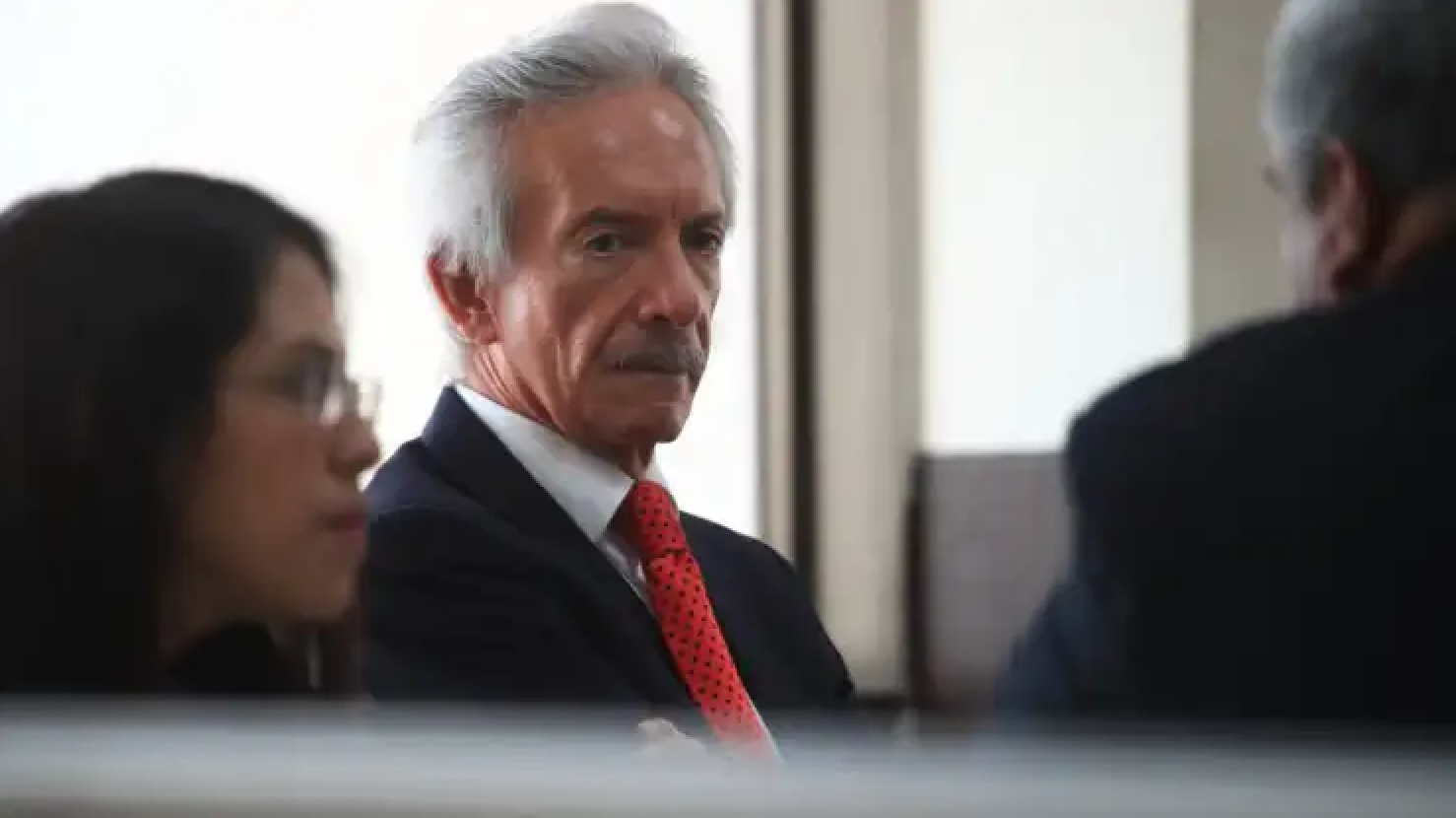
The son of renowned journalist José Rubén Zamora Marroquín, José Carlos Zamora, has denounced as “illegal” the court order that sent his father back to a Guatemalan prison on March 3, after already spending 819 days behind barsover a highly irregular money laundering case.
“My father’s return to prison was based on an arbitrary and illegal ruling. It is also alarming that the judge who had granted him house arrest received threats,” José Carlos Zamora told EFE in an interview on Saturday.
The 67-year-old journalist was sent back to prison inside the Mariscal Zavala military barracks on March 3, when Judge Erick García upheld a Court of Appeals ruling that overturned the house arrest granted to him in October. Zamora had already spent 819 days in prison over an alleged money laundering case.
His son condemned the situation as “unacceptable”, stating that the judge handling the case “cannot do his job in accordance with the law due to threats against his life.”
International
Miyazaki’s style goes viral with AI but at what cost?

This week, you may have noticed that everything—from historical photos and classic movie scenes to internet memes and recent political moments—has been reimagined on social media as Studio Ghibli-style portraits. The trend quickly went viral thanks to ChatGPT and the latest update of OpenAI’s chatbot, released on Tuesday, March 25.
The newest addition to GPT-4o has allowed users to replicate the distinctive artistic style of the legendary Japanese filmmaker and Studio Ghibli co-founder Hayao Miyazaki (My Neighbor Totoro, Spirited Away). “Today is a great day on the internet,” one user declared while sharing popular memes in Ghibli format.
While the trend has captivated users worldwide, it has also highlighted ethical concerns about AI tools trained on copyrighted creative works—and what this means for the livelihoods of human artists.
Not that this concerns OpenAI, the company behind ChatGPT, which has actively encouraged the “Ghiblification”experiments. Its CEO, Sam Altman, even changed his profile picture on the social media platform X to a Ghibli-style portrait.
Miyazaki, now 84 years old, is known for his hand-drawn animation approach and whimsical storytelling. He has long expressed skepticism about AI’s role in animation. His past remarks on AI-generated animation have resurfaced and gone viral again, particularly when he once said he was “utterly disgusted” by an AI demonstration.
-

 International4 days ago
International4 days agoFederal court blocks Trump’s use of Enemy Alien Act for deportations
-

 Central America4 days ago
Central America4 days agoHonduran group in U.S. pushes for voter registration to prevent election fraud
-

 Central America4 days ago
Central America4 days agoKristi Noem in Latin America: Talks with Bukele on expulsions and security policies
-

 International4 days ago
International4 days agoEcuador oil spill worsens as containment dam collapses
-

 Central America3 days ago
Central America3 days agoNicaragua denounces Costa Rica’s position in SICA as aligned with foreign interests
-

 Central America3 days ago
Central America3 days agoNicaragua’s new judicial law consolidates power in Ortega and Murillo’s hands
-
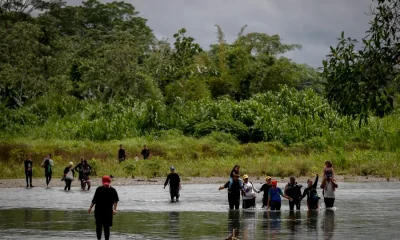
 Central America3 days ago
Central America3 days agoPanama’s president declares Darién gap ‘closed’ amid sharp drop in migrant flow
-

 International3 days ago
International3 days agoMarco Rubio warns Venezuela against military action against Guyana
-

 International1 day ago
International1 day agoSon of journalist José Rubén Zamora condemns father’s return to prison as “illegal”
-

 International1 day ago
International1 day agoMiyazaki’s style goes viral with AI but at what cost?
-

 Central America6 hours ago
Central America6 hours agoPanama police clarifies that Interpol alert for Martinelli is still pending
-

 International6 hours ago
International6 hours agoDeportation flight lands in Venezuela; government denies criminal gang links
-
Central America2 days ago
Nicaragua revokes legal status of 10 more NGOs, bringing total to over 5,600




















